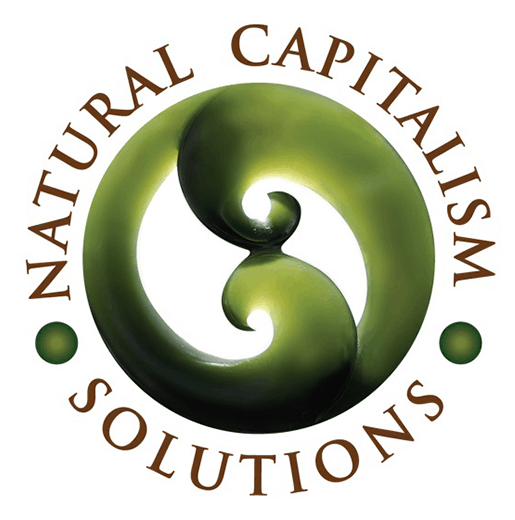Planet-Profit Report
(by Victoria Stephens & Dena Zocher)
6 March 2011
Hunter Lovins, the president and founder of Natural Capitalism Solutions, works with businesses, communities and governments to help them adopt sustainability principles and practices to deliver better value to their stakeholders. Lovins will give a keynote presentation at the 2011 Sustainable Opportunities Summit in Denver, April 11-12. Her new book,Climate Capitalism: Capitalism in the Age of Climate Change, will be released in April.
Here are a few excerpts from a conversation with Lovins that will continue at the Summit.
Green Convene Strategies: Do you see organizations engaging with Natural Capitalism Solutions more because of market pressures or because it’s the “right thing” to do?
Hunter Lovins: It depends on the company. If you had told me five years ago that Wal-Mart would be the entity on the planet doing the most to drive sustainability, I would have bet eating my hat against it. But here we are. Wal-Mart sustainability scorecard is driving thousands of companies in its supply chain to come to organizations like Natural Capitalism and ask “What do we have to do to be considered a sustainable company?”
Companies are also telling us that they believe it is just the right thing to do. We are working with companies that have always believed in sustainability, but are getting shareholder criticism because of a perception that money that could be going toward dividends is being spent on promoting green stuff. We help them to demonstrate how their commitment to sustainability enhances every aspect of shareholder value, an approach we call the integrated bottom line. Embedding sustainable practices as core to creating business value is the future of sustainability.
GCS: How is that approach different?
HL: What many call the “triple bottom line” has meant bolting on to profit programs to care for people and planet. If you look at environmental management systems and most green programs, they aren’t fundamentally changing the way in which companies do business. They add staff, programs and cost centers in an attempt to make the same old company appear a bit greener. If, instead of doing business as usual,you use sustainability to rethink your strategy, your operations and all of your practices, you drive increases in profitability, reduce risk, attract and retain the best talent, enhance your ability to raise conscious capital, increase labor productivity, drive marketing and enhance every aspect of shareholder value.
GCS: Does “Climate Capitalism” give organizations examples of how they can implement sustainability best practices to improve operations and drive value?
HL: The book starts with this hypothesis: Assume that climate change is a hoax. Frankly, don’t go to Vegas on the odds of that being true. But if all you care about is being a profit maximizing capitalist, you’d do exactly the same things as you would if you were scared to death about climate change. So let’s not argue about the science, let’s just solve the problem and make money.
The book then walks through examples of companies that are enhancing their profitability and overall business value, and communities that are enhancing their security and resilience. It describes opportunities in energy efficiency, renewable energy, green buildings, transportation, livable communities, agriculture, carbon markets and adaptation, demonstrating the extent to which climate capitalism drives national competitiveness, national security, job creation and economic prosperity. For example, in the agriculture chapter of the book, we demonstrate the extent to which sustainable agriculture is more cost effective, does a better job of feeding us, enhances the health of our children, and oh, by the way, solves the climate crisis.
GCS: Do you see businesses collaborating on sustainability best practices? Learning from each other? Is this happening, or do you have a recommendation about it?
HL: There’s a great need for collaboration and an increasing amount of it. Companies are realizing that we don’t know where to start. Many of them are joining the sorts of sustainability based associations that put on conferences like the Sustainable Opportunities Summit. These offer webinars and speakers, providing opportunities for corporate peers to come together and share their concerns and find real expertise. The companies that are doing this are driving the increased value that we profile in the book. Companies are also teaming with NGO’s like Natural Capitalism to implement genuine sustainability.
GCS: What is the most important idea or action you’d like people to take away from the Sustainable Opportunities Summit?
HL: I suppose it’s the old Pogo quote: “We are confronted with insurmountable opportunities.” We have all the technologies that we need to solve all of the problems facing us. It’s a question of will.
It’s time for business leaders to step up and take responsibility for implementing a capitalism that best enables them to create ever greater wealth. This is, after all, the genius of capitalism. Wealth is not just money and stuff. You can’t do business on a dead planet. And that’s what we’re facing. Business needs intact eco-systems; it requires intact human systems. As business recognizes that real capitalism – the productive and responsible use of all forms of capital – is a better route to profitability, business can take the lead in unleashing the prosperity that we’re all seeking.

Leave a Reply